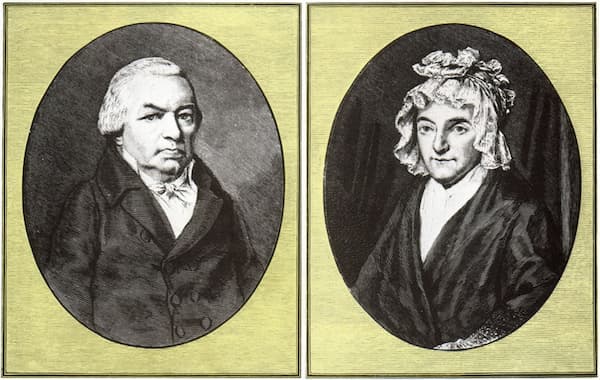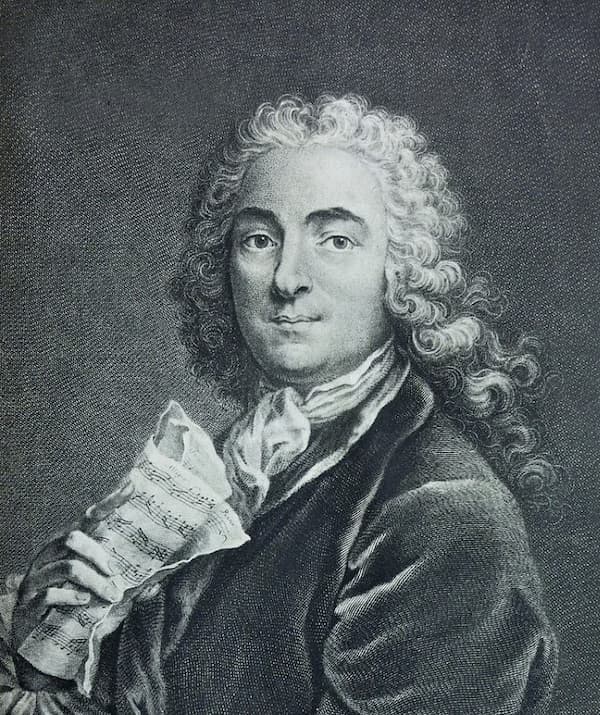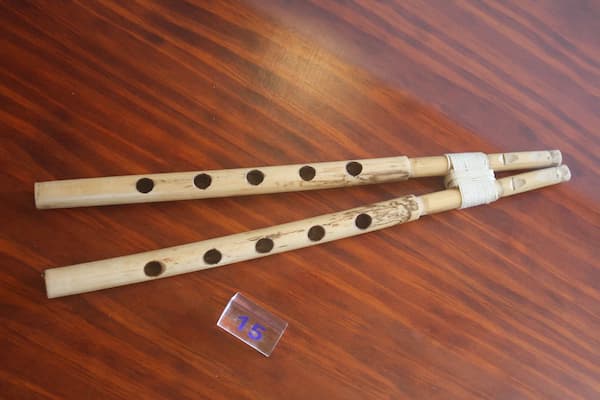For all that the world assumes a frantic Christmas cheer, there remain those corners of the world where loneliness and cold seem to rule. If Schubert’s Die schöne Müllerin is a song cycle of spring and summer, albeit with a downer ending, then his corresponding cycle for wintertime is, of course, Winterreise.
This winter journey is a setting of 24 poems by Schubert’s old standby, Wilhelm Müller, who also provided the texts for Die schöne Müllerin.
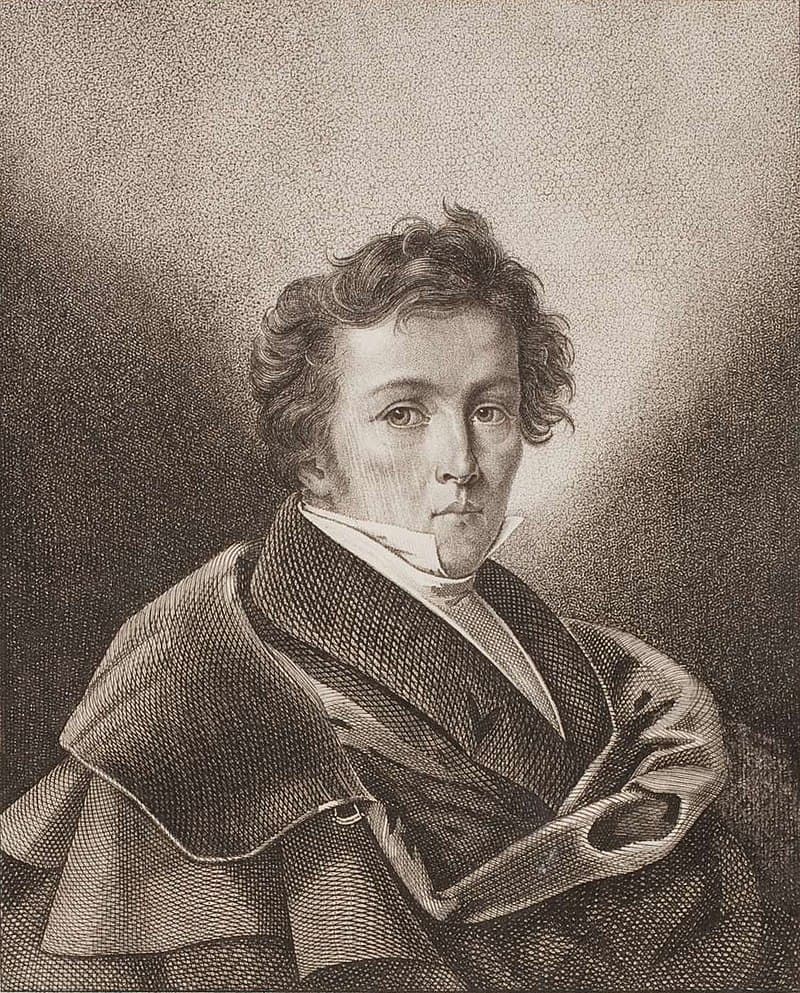
Johann Friedrich Schröter: Wilhelm Müller
What’s interesting about Winterreise is that Müller, living at the same time as the German Romantic poets, determinedly keeps his anonymous hero off the well-worn Romantic pathways. He could seek happiness but always seems to choose the way of isolation. His dreams do not keep him from his path of self-determination. The imagined future is not even considered because the reality surrounding him is much more satisfactory. In a bleak winter landscape, our hero plots his own path through the ice, snow and fog.
The 24 songs to accompany the poems were composed in 2 parts, the first 12 in February 1827 and the second half in October 1827. The reason for the two-part settings was that Schubert only found the first 12 poems in 1823, and it wasn’t until 1827 that he discovered the entire 24-poem cycle. Between the two dates, Müller altered the order of some of the first 12 poems so that Schubert’s cycle reflects Müller’s original order for the first 12, which doesn’t correspond to the final order of 1827, published in the wonderfully titled Gedichte aus den hinterlassenen Papieren eines reisenden Waldhornisten (pub’d in two volumes, 1821–1824) (Poems from the Posthumous Papers of a Travelling Horn-Player).
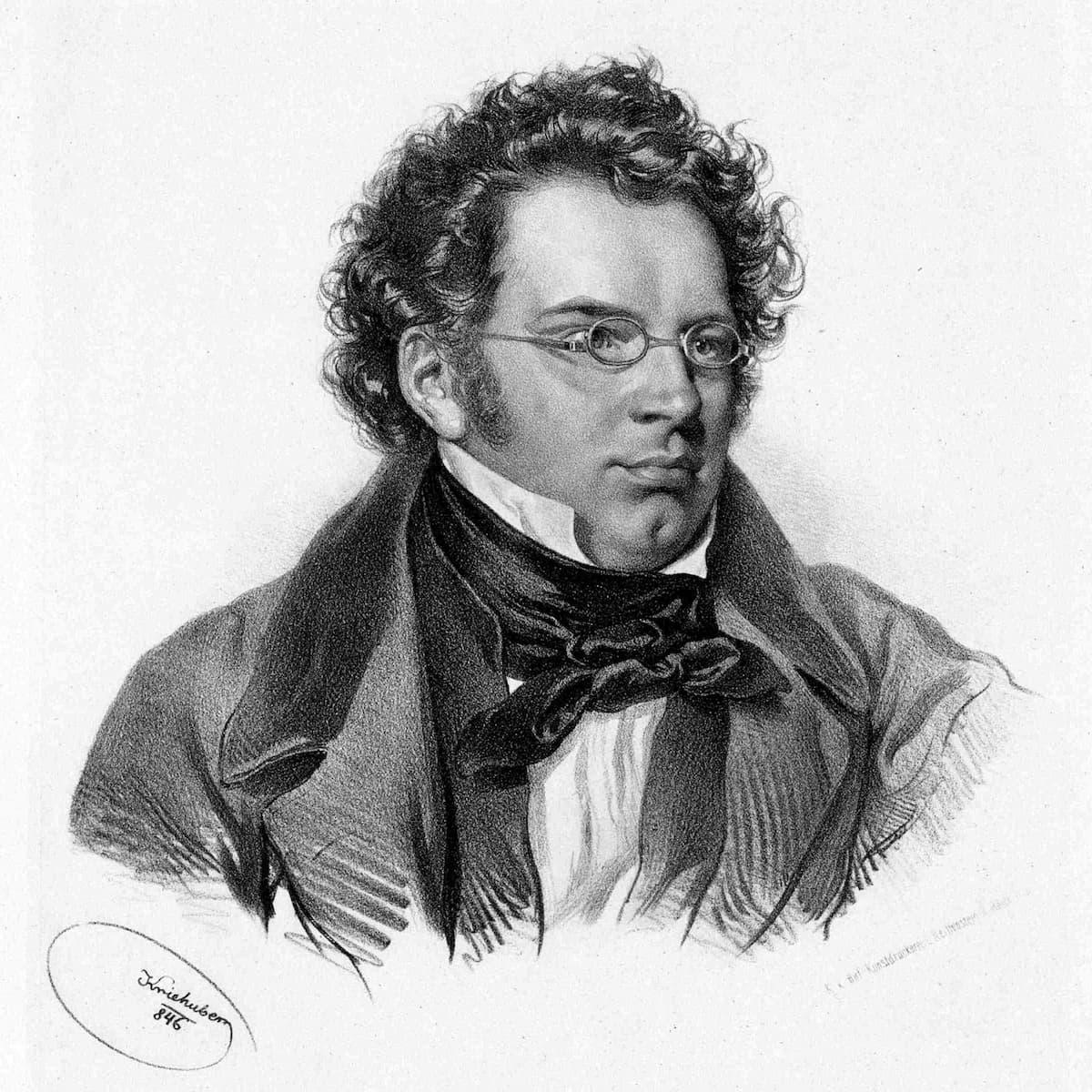
Josef Kriehuber: Franz Schubert, 1846 (Vienna, Austrian National Library)
Thematically, the first 12 poems are about our hero leaving his beloved’s house, and the second about his torments of having left her and his growing sense of resignation. Set in the month of December, the poetic cycle was likened to a ‘full-scale tragic opera’ by Müller’s son, the English Orientalist professor Friedrich Max Müller. The last mention of the beloved occurs in the mid-point of the work and from then on, the hero is left to his own bitter and grief-filled thoughts.
The cycle opens with the hero leaving before he is driven out, as he says, lingering outside his beloved’s gate, wishing her house good night.
Franz Schubert: Winterreise, Op. 89, D. 911 – No. 1. Gute Nacht (Ian Bostridge, tenor; Thomas Adès, piano)
In the second song, Die Wetterfarne (The Weathervane), as the wind sets the weathervane whirling, he suspects it’s whistling in derision at him. Had he seen that weathervane first, he would have known that his beloved could not be faithful to him.
Still, he stands there, his tears falling frozen to the ground (Gefror’ne Tränen (Frozen tears).
Next, he seeks her steps, where they had walked together, now lost under the frozen ground; the flowers are faded, and even his tears cannot melt the snow.
One of the first songs recognized by Schubert’s friends was the fifth song, Der Lindenbaum (The Linden Tree). Where the tree once offered him shelter and where he carved his love on the trunk, it only provides whispers of the past and the wind, whistling through the empty branches, can only make his hat fly off.
Franz Schubert: Winterreise, Op. 89, D. 911 – No. 5. Der Lindenbaum (Ian Bostridge, tenor; Thomas Adès, piano)
In poem six, he continues his endless weeping – and fantasizes that it will melt the snow, the ice will break up, grass will sprout, and where you feel his tears glow, you will know that it’s his beloved’s house.
Now, he addresses the stream that flowed so merrily when he met his beloved in the summer. Now, frozen under ice, the stream can only lie ‘cold and motionless’…like his heart.
He turns away and promises himself never to look back. Yet, in his memory, he can only reflect on his warm welcome in the summer and the contrast with his cold exit.
Now, he’s led by a will-o’-the-wisp off the path and into unchartered territory.
In the 10th poem, he seeks rest – it’s too cold to stand and he’s pushed forward by the storm. He finds a charcoal burner’s house, which would have been used in the summer and would be empty in the winter but still he cannot escape the feelings that drive him onward.
He dreams of spring, he dreams of May flowers, and yet he’s surrounded by frozen windows and shrieking ravens and not the flowers of spring – he still wonders when he will hold her in his arms, and we all know that this will never happen.
We now reach the midpoint of the work, where he turns from her to the world outside. He’s feeling miserable, yet the air is calm, and the world is bright. How can he be miserable when there’s no storm to match his temperament? The title, Einsamkeit (Loneliness), encapsulates his internal feelings.
Franz Schubert: Winterreise, Op. 89, D. 911 – No. 12. Einsamkeit (Ian Bostridge, tenor; Thomas Adès, piano)
As he turns his attention away from her (although she’s always in the background), he hears the post-horn. His heart leaps because, in the past, it brought letters from HER. Now, without a beloved, there’s no mail for him.
Franz Schubert: Winterreise, Op. 89, D. 911 – No. 13. Die Post (Ian Bostridge, tenor; Thomas Adès, piano)
His black hair, now sprinkled with snow since losing his hat at the linden tree, seems to have greyed and aged him – but yet knows he’s young and can shake off this appearance of having lost his youth. Again, he’s not concerned with her but with his own concept of self as old and worn-out.
The first living creature in the poem is a crow. Our hero debates whether the crow is there to escort him out of town or to wait for his death so that he may feast on him as he lays in the snow. These are his first thoughts of mortality.
And, mirroring these thoughts of mortality, in Letzte Hoffnung (Last Hope), he looks for one last leaf clinging to a tree, but it is caught and thrown to the ground, just as his own hopes have been dashed away.
In song 17, Im Dorfe (In the Village), he finally leaves the village – the dogs are barking, but their owners are asleep in their beds, dreaming of good things and hope, the things he doesn’t have.
Franz Schubert: Winterreise, Op. 89, D. 911 – No. 17. Im Dorfe (Ian Bostridge, tenor; Thomas Adès, piano)
The morning only brings storms (Der stürmische Morgen)– red flames in the grey clouds from the sunrise – which matches his own black humour.
He then reflects on Täuschung (Delusion) – the light of friendship has become a false light, which can only lead him astray. He sees a bright, warm house, but it isn’t for him.
Song 20 takes him to a crossroads where there is Der Wegweiser (The Signpost). He could take the easy way to the next town, but instead, he’s driven to the path not taken (to crib from Robert Frost in 1916).

Crossroads to nowhere
Franz Schubert: Winterreise, Op. 89, D. 911 – No. 20. Der Wegweiser (Ian Bostridge, tenor; Thomas Adès, piano)
Although the next poem is called Das Wirtshaus (The Inn), the original title in Müller is Auf ein Todtenacker (On a Dead Field), i.e., a cemetery. Every ‘house’ is filled, and there’s no room for him so he continues on.
In Muth! (Courage), he strides on into the storm – snow in his face but singing, even though his ears cannot hear.
Franz Schubert: Winterreise, Op. 89, D. 911 – No. 22. Mut (Ian Bostridge, tenor; Thomas Adès, piano)
In the penultimate poem, he sees phantom suns – three of them in the sky. We know these now as sun dogs.

Sun Dogs (photo by Gopherboy6956)
As sunset approaches, the double suns disappear and then he’s left in the dark.
The most effective song of the cycle concludes the work: Der Leiermann (The Hurdy-Gurdy Man). Here’s the first live and present human our hero has met all day. He’s playing his hurdy-gurdy with frozen fingers, standing on bare feet, and nothing in his offering play. The dogs snarl at him, and everyone ignores him, but still, he plays on. Our hero fastens on this most unlikely of saviours to accompany off into the darkness.
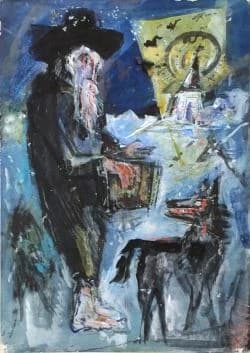
Fritz Huhnen: Der Leiermann (1940)
Franz Schubert: Winterreise, Op. 89, D. 911 – No. 24. Der Leiermann (Ian Bostridge, tenor; Thomas Adès, piano)
Or does he? It seems clear that to follow this crazy man is to go into a wilderness from which, in the cold weather, there may be no return. The last song is cold and quiet, and you fear what will be happening next.
It’s an extraordinary cycle that seems to chill the listener every time the last song is sung. Writers note that this dramatic monologue, filled with death, may reflect Schubert’s own knowledge of his upcoming demise – in 1822, Schubert was ill with then-uncurable syphilis – and one of his last actions on his deathbed was a correction of the proofs for the last half of the songs.
For more of the best in classical music, sign up for our E-Newsletter

